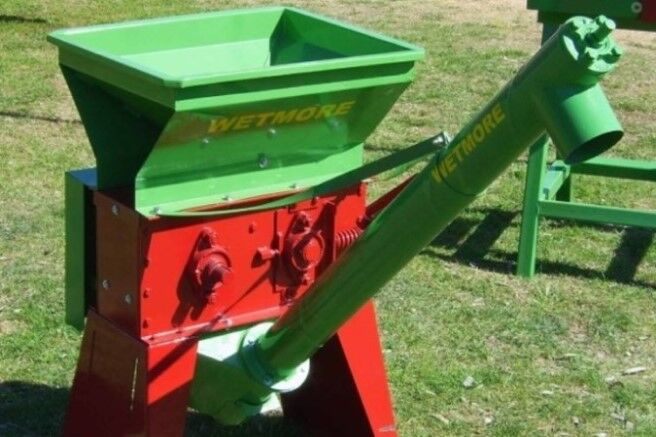Categories
Popular Posts
Why Every Rolling Sports Field Needs a Lockwood Sport RollerEco-Friendly Agriculture: Harnessing the Power of Sustainable Farming Equipment How Your Lockwood Grain Mixer Can Help with Animal Feed 5 Tips to Make Smart Ag Machinery Investments for Your Farm Top Benefits of Using Roller Mills in Livestock Feed Production
In the world of livestock farming, high-quality feed is critical for optimal animal health, growth and production. One of the most efficient tools in feed preparation is the roller mill. Known for their precision and efficiency, roller mills are becoming increasingly popular among farmers and feed producers. In this blog, we’ll explore the top benefits of using roller mills in livestock feed production and why businesses like Lockwood Ag in Kyneton, Victoria, are at the forefront of this technology.
1. Improved Feed Consistency
A roller mill provides uniform particle sizes, which is crucial for ensuring consistent feed quality. Unlike hammer mills, which can create irregular particle sizes, roller mills crush grains evenly, making the feed easier for livestock to digest. This leads to better nutrient absorption and overall animal health. Whether you’re feeding cattle, pigs or poultry, consistent feed quality can significantly enhance growth rates and production efficiency.
2. Enhanced Digestibility
The crushing action of roller mills preserves the grain’s natural starch content while breaking down its outer shell. This process enhances digestibility by making the nutrients more accessible to the animal’s digestive system. Improved digestibility means less feed is wasted, translating to cost savings for farmers.
3. Energy Efficiency
Roller mills are designed for energy-efficient operation. They consume less power than traditional milling systems like hammer mills, reducing electricity costs over time. For farmers and feed producers focused on sustainability, this energy efficiency aligns with modern agricultural goals of reducing the carbon footprint while maintaining high production standards.
4. Customizable Grinding Options
One of the standout features of roller mills is their ability to adjust the grind size according to specific livestock needs. Different animals require different feed textures, and roller mills allow farmers to fine-tune their production to meet these requirements. This customization ensures that animals receive the optimal feed consistency for their species and stage of growth.
5. Reduced Dust and Noise
Compared to other feed processing systems, roller mills produce significantly less dust and noise. This makes them a safer and more comfortable choice for operators. Reduced dust levels also help maintain a cleaner working environment, which is essential for preventing contamination in feed production facilities.
6. Lower Operating Costs
Over time, the efficiency and precision of roller mills lead to lower operating costs. Farmers save on energy bills, feed waste, and maintenance costs, as roller mills are designed for
durability and long-term performance. With proper upkeep, they can last for years, offering a great return on investment.
Why Choose Lockwood Ag in Kyneton, Victoria?
If you’re looking for reliable and high-performing roller mills, Lockwood Ag in Kyneton, Victoria, is a trusted name in agricultural equipment. Known for their expertise and quality products, they offer a wide range of roller mills tailored to meet the specific needs of Australian farmers. Their commitment to innovation and customer satisfaction ensures you get the best value for your investment.
Conclusion
Investing in a roller mill is a smart choice for livestock feed production. From improved feed quality to energy efficiency and cost savings, the benefits are clear. If you’re in the market for a reliable solution, consider exploring the options available at Lockwood Ag in Kyneton, Victoria. With the right equipment, you can take your feed production to the next level, ensuring healthier livestock and a more profitable operation.
